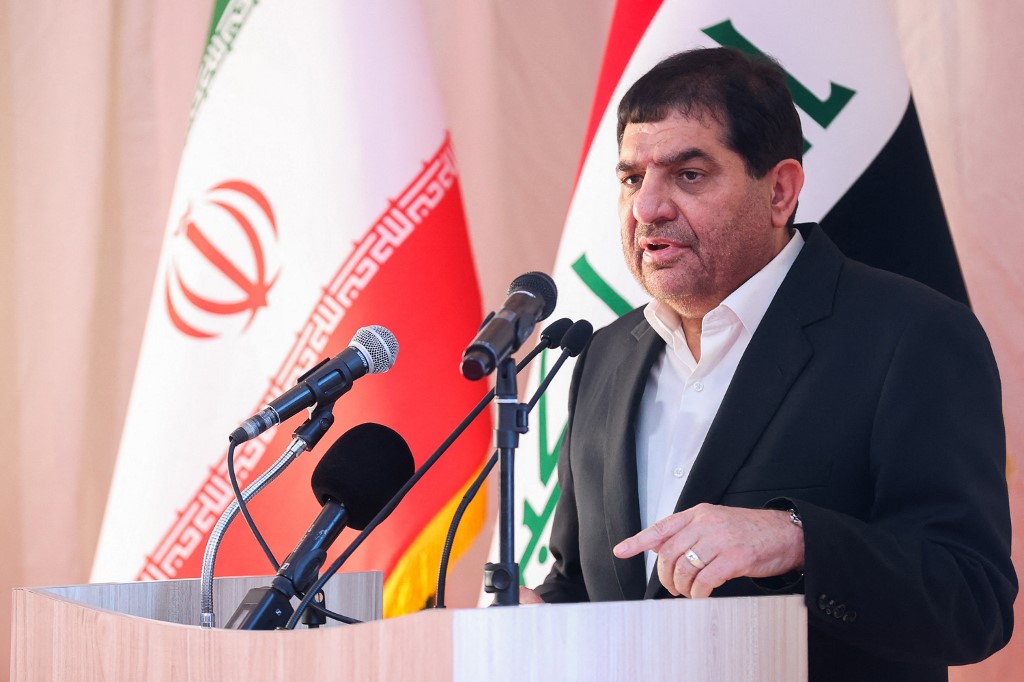
(FILES) A handout picture provided by the Iranian Vice President's Media Office shows Vice President Mohammad Mokhber speaking at the ceremony to lay the foundation stone for the railway connection project at the Shalamcheh border crossing in Iraq's southern province of Basra Governorate on September 2, 2023. Iran's first vice president, Mohammad Mokhber, is expected assume the presidency after Ebrahim Raisi's death in a helicopter crash on May 19, 2024 as the country gears up for early elections. (Photo by Iranian Vice-Presidency / AFP) / === RESTRICTED TO EDITORIAL USE - MANDATORY CREDIT "AFP PHOTO / HO / IRANIAN VICE PRESIDENCY" - NO MARKETING NO ADVERTISING CAMPAIGNS - DISTRIBUTED AS A SERVICE TO CLIENTS ===
Iran’s supreme leader, Ayatollah Ali Khamenei, has appointed Vice President Mohammad Mokhber as interim president following the death of President Ebrahim Raisi in a helicopter crash.
The accident, which occurred on Sunday, also claimed the lives of Foreign Minister Hossein Amir-Abdollahian and other officials.
“In accordance with Article 131 of the constitution, Mokhber is in charge of leading the executive branch,” Khamenei stated. He added that Mokhber must collaborate with the heads of the legislative and judicial branches to prepare for presidential elections “within a maximum period of 50 days.”
Raisi, who was nearing the end of his first four-year term, leaves a significant leadership gap as the country prepares for a new election. The constitution mandates that presidential elections to choose a permanent successor must be held within 50 days.
A council consisting of the parliament speaker, the head of the judiciary, and the vice president will be responsible for organizing the national vote.
Mohammad Mokhber, 68, who has been serving as vice president since Raisi took office in August 2021, was born in Dezful, Khuzestan province. Before his vice presidency, he held several official positions in his home province and chaired the Execution of Imam Khomeini’s Order, a governmental organization managing properties confiscated after the 1979 Islamic revolution. This foundation has grown into a major state economic conglomerate with interests in various sectors.
Since the Islamic republic’s first vote in 1980, Iranians have headed to the polls for presidential elections every four years, with the constitution imposing a two-term limit for presidents. In Iran, the president, assisted by several vice presidents, is responsible for appointing and directing the cabinet, as the country does not have a prime ministerial position.








